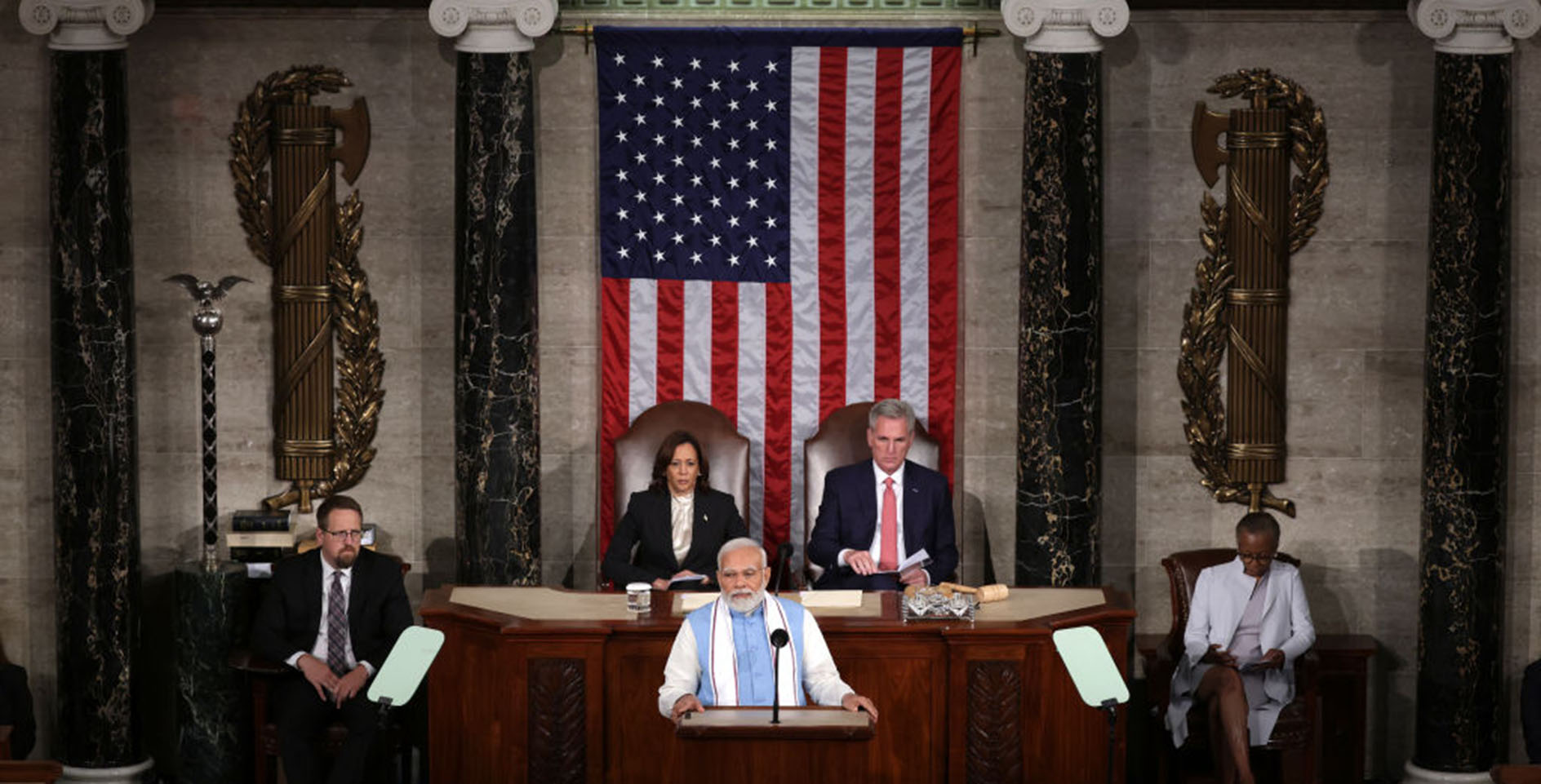I grew up in the south, where “separation of church and state” was understood as something akin to confessional allegiance to the emperor Nero. My southern, conservative, Christian community battled local school administrators over prayer at football games, 10 Commandments at the courthouse, and tried our best to get as many evangelicals elected to office in Washington as possible. We thought “separation of church and state” was the principality that stood in opposition to our efforts to preserve our influence in the culture.
We had little to no understanding that the separation of the power of the state over the church would be at the top of our collective wish list just a few decades later.
Now, in the wake of Supreme Court rulings like Burwell vs. Hobby Lobby, evangelical Christians are digging deeper on the idea of religious liberty, and the concept of “separation of church and state.”
To be sure, evangelicals haven’t changed much on one issue; we still want to preserve the right to bring our faith with us into the public square. But now—perhaps more than ever, or at least since 1776—American Christians want to gain absolute clarity about the limits of power of the state over the church. Evangelicals are also learning that coercive power and influence are two different things; especially when you are in the religious minority.
One place American evangelicals are unlikely to look for perspective on religious liberty for all is Nazi Germany. But there in Pomerania—teaching at an underground seminary—Dietrich Bonhoeffer wrote an essay on American Protestantism and church-state relations.
Bonhoeffer viewed the American experiment as an outsider, first as a student in New York City, and later in search of political asylum. He only returned home to Germany in 1939—his second trip to the United States—because, as he said in a letter to his friend Reinhold Niebuhr: “I will have no right to participate in the reconstruction of the Christian life in Germany after the war if I do not share the trials of this time with my people.”[1]
Two concepts, according to Bonhoeffer’s assessment, frame how outsiders perceive the church in a foreign context. First, a foreign observer “has the tendency to attribute the strangeness of another church to the peculiarities of its geographical, national, and social location, that is, to understand it in terms of its historical political, and sociological context.”[2] There is a mix of both fixed, cross-culturally transcendent realities of the Church (God’s revelation, the real presence of the Body of Christ, etc.) and dynamic attributes that distinguish one context from another. An outside observer that fixates only on the universals or only on the particulars fails to understand the foreign church.
Second, Bonhoeffer writes that “[t]he observer of a foreign church is all too easily content with the current picture of the church’s situation.”[3]Churches—like cultures—are supported by the momentum of history and set on a trajectory that requires inevitable change. They are fluid. Reducing another culture’s identity to a two-dimensional, static caricature is a real danger to the outside observer. Churches and cultures change over time.
Bonhoeffer was impressed, in many ways, by what he observed in America. He understood the separation of church and state the way Thomas Jefferson intended in his letter to the Danbury Baptists. Bonhoeffer’s observation was that the state’s power over the church was limited. The state’s power, in the American form of democracy, is limited by civilians that make up both church membership rolls, as well as voter registration lists. They have dual citizenship in Luther’s two kingdoms. The basis of this separation, Bonhoeffer explains, is why democracy and Christian principles have aligned better in America than in any other national government in the world.
Bonhoeffer writes of the contrast between the European governments and the American form of democracy:
The fundamental difference between [the American] church-state relation and that of the churches of the Reformation is obvious. The American separation of church and state is not based on the doctrine of two offices or the two kingdoms that were ordered by God to remain until the end of the world, each serving a fundamentally [sic.] difference way.[4]
According to Bonhoeffer’s Ethics, an aberrant form of the Reformation’s two kingdoms doctrine became justification for all sorts of atrocities by the German government at the time. A sort of “pseudo-Lutheran” natural theology emerged that was used to establish a radically optimistic view of the orders of creation. Bonhoeffer scholar Larry Rasmussen, in a footnote to the critical edition of Bonhoeffer’s letters and papers, writes:
As in Creation and Fall, given as lectures in the winter semester of 1932-1933, he is countering a natural theology and its misuse, which was to bolster the Nazi platform of ‘blood and soil.’ ‘Orders of creation’ was being used by conservative Lutheran theologians and the German Christians in a natural theology that yielded autonomous orders, such as state and family, apart form the revelation of God in Jesus Christ.[5]
In fact, it was none other than cosignatory of the Barmen Declaration, Karl Barth that led Bonhoeffer away from this view of creation toward a more moderate two kingdoms perspective. Bonhoeffer never fully abandoned the two kingdoms framework, but he did provide a critically nuanced alternative to the distorted Lutheran concept of the divine orders in his day.
Bonhoeffer concludes:
This should make us think about why on the European continent it has never been possible to base a democracy on Christian principles, about why on our continent democracy and Christianity are always seen in somewhat opposition to each other, while in America democracy can be glorified as the epitome of a Christian form of government. In answering this question, one must recall that the European continent ruled out this possibility when it persecuted and expelled the spiritualists.[6]
One might assume, based on such a positive, self-deprecating appraisal of American church-state relations, that Bonhoeffer was naively optimistic about the future of the church in the United States in contrast to Germany’s.
On the contrary, Bonhoeffer wrote, “Our knowledge of the American church situation can teach us the following lesson: a church that is independent of the state is no more protected from secularization than a state church. Whether the church is connected to the world or independent of it, the threat of infringement in the church remains the same.”[7] The purity of the church is not threatened only at the institutional level, but at the organic level as well. Sin’s influence on the church can attack from any number of angles. It’s clear that Bonhoeffer is not weary of the state only, but in the tendency of healthy churches to become sick over time. Bonhoeffer’s critique—now in hindsight—resonates today, nearly prophetic it it’s anticipation of America’s flirtation with secularism. Many of America’s mainline churches—who at one time were the context for great revival in our nation’s history—gave way to secularized graveyards.
Take a look at Bonhoeffer’s report to Berlin on his impression of churches in New York in 1931:
Anyone who has seen the weekly program of one of the large New York churches, with their daily, indeed almost hourly events, teas, lectures, concerts, charity events, opportunities for sports, games, bowling, dancing for every age group, anyone who has heard how they try to persuade a new resident to join the church, insisting that you’ll get into society quite differently by doing so, anyone who has become acquainted with the embarrassing nervousness with which the pastor lobbies for membership–that person can well assess the character of such a church. All these things, of course, take place with varying degrees of tactfulness, taste, and seriousness; some churches are basically ‘charitable’ churches; others have primarily a social identity. One cannot avoid the impression, however, that in both cases they have forgotten what the real point is.[8]
For Bonhoeffer, it is the lack of distinction between the two kingdoms that has led to secularization of the church in America. “The European-continental secularization of the church stems from the—misinterpreted—Reformation distinction of the two kingdoms; the American secularization stems from precisely the lack of distinction of the kingdoms and the offices of state and church…”[9] Bonhoeffer wrote. Discerning the role of the church in contrast to the role of the state in America can be a bit like Abbott and Costello’s “Who’s on First?” To put it lightly, the Germans were a bit clearer in regards to who was in charge in 1939. Unfortunately, Germany’s was an illegitimate government who abandoned its role to protect its citizens.
LifeWay Research’s analysis of the “Rise of the Nones” is confirmation of the increasing exposure of nominal Christianity within American churches—what is so often described as “church decline.” While many run panicked to polling stations, hands wringing over the perception of an emerging Christian religious minority in a country who has historically maintained religious homogeny since its founding, Bonhoeffer speaks to us today with the voice of a strikingly similar Christian minority in Nazi Germany.
Germany, like America, had a national religious identity. The Lutheran State Church was a large part of what it meant to be German volk. But in spaces where the spiritual content of religious forms and institutions in Germany became void, a prophetic minority from within—the Confessing Church movement—rose up. “Is America a Christian nation?” might seem like an increasingly irrelevant question if our churches are not filled with Christian people; that was the problem German churches faced in Bonhoeffer’s day. A better, more urgent question is, “Will America be a nation of faithful Christians?” or, “Will our churches be Christian churches?” The “Rise of the Nones” exposes our own sort of secular state churches scattered about in America—mainly mainline Protestant churches that died years ago.
As I’ve grown up, I am more comfortable with the phrase “separation of church and state” than when I was a youngster in Nashville, TN. It’s not that I want to compartmentalize my faith and civic duty; the opposite is the case. But I want to heed Bonhoeffer’s cautionary tale. We cannot so marry the two kingdoms that the church begins to look like the state/world.
“Let’s keep Christianity Christian, y’all.”
[1] Dietrich Bonhoeffer. Clifford J. Green ed. Theological Education Underground: 1937-1940. Minneapolis: Fortress, 2011. 210.
[2] Ibid. 438.
[3] Ibid. 439.
[4] Ibid. 452.
[5] Dietrich Bonhoeffer. Clifford J. Green ed. Berlin: 1932-1933. Minneapolis: Fortress, 2009. 362.
[6] Theological Education Underground: 1937-1940, 452.
[7] Ibid. 453.
[8] Bonhoeffer, Dietrich. Barcelona, Berlin, New York: 1928 – 1931. Clifford J. Green ed. Minneapolis: Fortress, 2008. 313-314.
[9] Ibid.










